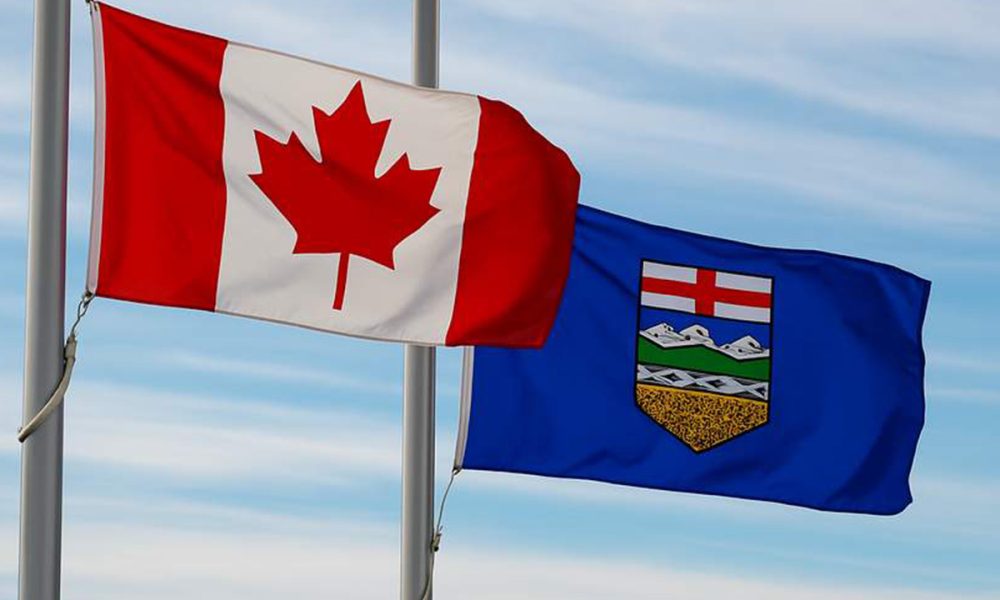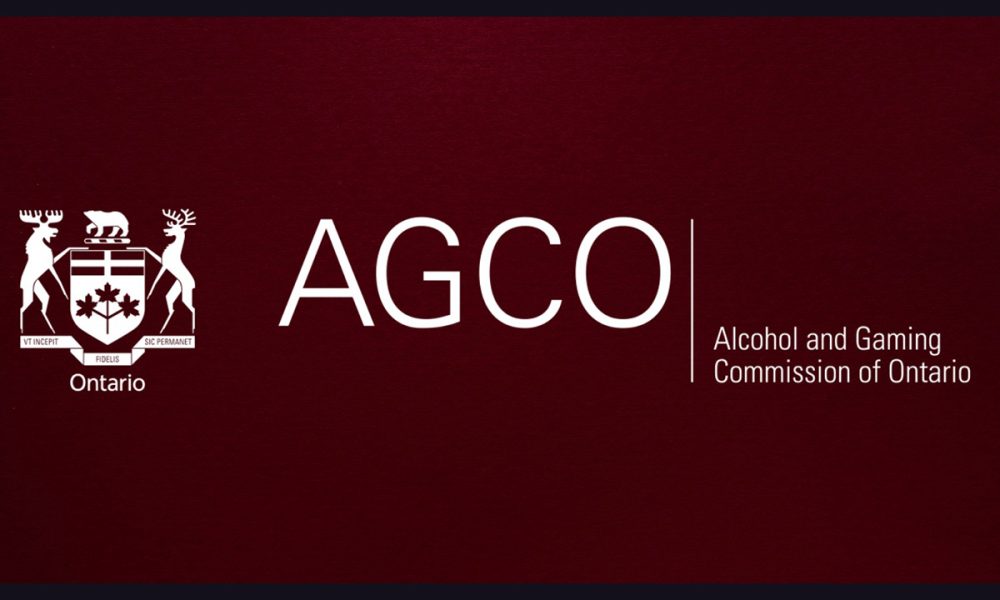Canada
Flop, turn, river; how has US gambling evolved in the last five years?
Gambling has been a part of American culture since the colonial era. Would you believe that the first recorded gambling activity in the US was purportedly in 1620 when the Pilgrims landed on Plymouth Rock and held a public lottery to finance their colony.
Safe to say then, gambling has been a popular pastime in the US, particularly considering the strength of their sporting industries, which are bastions of the continent’s financial and social landscape.
The federal government had a strict stance on gambling, and it was mostly illegal except for a few states like Nevada. The Professional and Amateur Sports Protection Act (PASPA) prohibited states from authorizing sports betting, with a few exceptions.
But in May 2018, in the case Murphy v. National Collegiate Athletic Association, the US Supreme Court overturned a federal ban on sports betting, which had been in place since 1992. The decision declared PASPA unconstitutional, giving individual states the power to legalize and regulate sports betting as they see fit.
The move to legalize sports betting has had a significant impact on the gambling industry. It has opened up a new market for sports betting, creating opportunities for casinos, sportsbooks, and online betting platforms, much like casino sites and affiliates in the UK that have been legal in the UK for many years.
This year’s Super Bowl was the first played in a state — Arizona — with legal sports gambling and online sportsbooks reportedly received 100 million “pings” through betting apps during the game, bringing in an estimated $1 billion.
This leap in activity has been pounced on by major sports leagues too, sportsbook sponsorship driving overall NFL sponsorship revenue to a record $1.8 billion in the 2021 season.
Thirty three states, including Washington D.C. and Puerto Rico have legalized the practice and reaped billions of dollars of previously untapped revenue. In fact, the American Gaming Association estimates that the sports betting market could be worth up to $150 billion annually.
Online sports wagering is available in 23 states and one territory.
The legalisation of sports betting has not only created new revenue streams for the gambling industry but also for the economy as a whole. Casinos and sportsbooks have created jobs in local communities, with some states experiencing a surge in tourism. Moreover, the tax revenue generated from sports betting has been significant. For example, in New Jersey, sports betting has generated over $100 million in tax revenue since its legalization in 2018.
The Supreme Court’s decision on sports betting has also paved the way for the legalisation of online gambling, which had previously been illegal in most states. But now, several states have since opened their doors to it, including New Jersey, Pennsylvania, and Delaware. Online gambling has become a popular option for many people, and it has the potential to generate significant revenue for states that legalise it.
While there have been many positive economic effects, it has also raised concerns about its social impact. Gambling addiction is a serious problem that affects millions of people worldwide, and some fear that the legalization of gambling could exacerbate the problem. However, states that have legalized gambling have implemented measures to address gambling addiction, such as education programs and support groups.
Despite the potential benefits of gambling legalisation, there are still those who oppose it. Some religious groups argue that gambling is immoral and should be banned, while others fear that it could lead to an increase in crime and other social problems.
“The legalization of sports gambling requires an important policy choice, but the choice is not ours to make,” Justice Samuel A. Alito Jr. wrote in the case’s decision, highlighting the moral imperative behind the choice to gamble or to not.
Ironically, the states that are furthest away from permitting online sports betting may be the three biggest states by population: Texas, California and Florida. Texas could possibly legalize in the near future but there has been pushback from the state officials, including Governor Greg Abbott.
California and Florida have had difficulty passing legislation due to Native American tribes, which see the emergence of gambling legalisation as a siphon into their profits. This battle in particular could be one to monitor in the coming months and years. Challenges have already begun in the relations between casino operators opening in states where Native American operations have historically held the monopoly.
However, supporters of gambling legalization argue that it can be regulated and controlled, and that the benefits outweigh the risks. The increased cash flow would bring in funding for essential public services like healthcare and education.
It’s clear that this is a new era for the industry in the US. With more states expected to legalise sports betting and online gambling, the industry is poised for significant growth.
In a recent interview with The Conversation, Keith Whyte, executive director of the National Council on Problem Gambling, said roughly 25% of American adults bet on sports, up from 15% before the Supreme Court ruling.
Does that mean that even when more states legalise the practice, will a significantly higher percentage of the US population start and continue betting or has the ceiling been reached?
“I think it’s changing the market in a lot of ways,” Whyte said, “but my guess is it’s mainly to increase the intensity – and associated risk of problem gambling – among fans that were already engaged fans.”
The future of gambling in the US is still uncertain, with debates about its social impact and regulation ongoing. Where the UK is arguably reeling back in the power gambling companies hold over advertising and market activity through the government’s upcoming White Paper, the US is taking off.
As the industry continues to evolve, it will be essential to strike a balance between economic benefits and social responsibility but one things for certain, the US has a baked-in love for gambling and given the stratospheric success of sportsbooks across the nation since the 2018 ruling, it is unlikely to dampen anytime soon.
AGLC
Casino ATM Scam in Edmonton Reveals Money Laundering and Drug Links

Law enforcement in Alberta continues to search for the last suspect in a sophisticated fraud operation that targeted ATMs in Edmonton-area casinos and resulted in over CAD 1 million ($720,487) in losses throughout Western Canada.
The Royal Canadian Mounted Police (RCMP) has confirmed that Hisham Ismaeel, 28, remains at large with a province-wide warrant for his arrest. He faces charges of fraud exceeding $5000 and possessing proceeds of crime. Police have already arrested four other men linked to the scheme. Investigators describe the operation as a well-planned effort to exploit financial systems and clean dirty money.
The accused, Elliot Miao, 42, Van Bau Ta, 39, Hassan Jaafar Haydar Ahmad, 37, and Dennis Jones, 42, showed up in the Alberta Court of Justice last week. They face charges from fraud and money laundering to owning criminal property. Miao also has a narcotics trafficking charge after police found cocaine when they searched with warrants.
Investigators claim the group made coordinated withdrawals at several casino ATMs, timing their transactions to avoid getting caught. This action messed up ATM networks in the area and showed flaws in the systems that banks and casinos use to stop misuse.
The RCMP Federal Policing Northwest Region led an investigation that involved six search warrants in Edmonton. The Edmonton Police Service, the Financial Transactions and Reports Analysis Centre of Canada (FINTRAC), Alberta Gaming, Liquor and Cannabis (AGLC), and several banks supported this effort. Officials said the case shows how teamwork between public agencies and the private sector plays a key role in combating modern financial crime.
AGLC representatives pointed out that casino operators in the province must follow strict reporting and surveillance rules under Canada’s anti-money laundering laws. The specific casinos affected remain unnamed, but the Edmonton region has seven licensed facilities. AGLC said its policies helped spot problems and backed the RCMP’s investigation.
Compliance experts say this fraud shows how criminals change their methods to take advantage of weak spots in reporting limits and transaction checks. They claim that casinos, which deal with lots of cash, are still easy targets unless they keep improving their detection systems and teach their front-line workers to notice coordinated actions like several big withdrawals happening one after another.
For now, the case highlights both the money and crime aspects of casino-related fraud. Besides the million-dollar losses, finding drugs during the raids points to a bigger criminal operation where financial crimes and drug dealing overlap.
The post Casino ATM Scam in Edmonton Reveals Money Laundering and Drug Links appeared first on Gaming and Gambling Industry in the Americas.
Bragg Gaming
Bragg Confirms Cyber Attack – Hackers Access Internal IT Systems

Bragg Gaming Group, a leading online gaming technology provider, has confirmed a major cybersecurity incident that compromised its internal IT infrastructure in the early hours of Saturday, August 16, 2025.
The company detected unauthorized intrusion attempts that successfully breached its internal network, triggering an immediate and comprehensive incident response.
Key Takeaways
-
Bragg Gaming Group experienced a cybersecurity breach involving access to internal IT systems.
-
No customer personal data or payment information appears to have been compromised.
-
The company has enacted full containment and investigation protocols.
Details of the Breach
According to a preliminary forensic analysis by Bragg’s internal security team, the attack was a targeted breach aimed at the company’s internal computer environment. While the exact method of intrusion is still under investigation, early indicators suggest a sophisticated exploit of internal network vulnerabilities.
Fortunately, the company’s customer-facing systems, including sensitive user data and financial information, appear to have been unaffected. Bragg’s existing encryption protocols and access control systems successfully prevented the attackers from accessing customer information.
Immediate Response Measures
In response to the breach, Bragg launched a multi-tiered containment strategy, including:
-
Network Segmentation to isolate affected systems
-
Enhanced Monitoring of data flows across its Remote Games Server (RGS) platform
-
Security Audits of critical infrastructure, including the Bragg Hub and PAM systems
-
Engagement of Independent Cybersecurity Experts to assist in incident analysis and system hardening
Bragg’s Security Operations Center has also elevated its alert level, initiating 24/7 monitoring across all server clusters and network endpoints. In addition, company-wide penetration testing is now underway to proactively identify any residual vulnerabilities.
Business Continuity Maintained
Despite the severity of the breach, Bragg reports that its operations remain unaffected. All gaming services, including iCasino and sportsbook offerings across regulated markets, continue to function without disruption.
“While this incident is deeply concerning, we are confident in the rapid and thorough response initiated by our team,” a company spokesperson stated. “We remain committed to protecting our infrastructure, our partners, and most importantly, our players.”
Looking Ahead
As part of its response, Bragg has also launched mandatory security awareness training for all employees to reinforce best practices and prevent future incidents.
Cybersecurity analysts will continue working with Bragg to determine the full scope of the attack, improve system resilience, and maintain the trust of its users and stakeholders.
Bragg’s handling of the incident highlights both the evolving nature of cybersecurity threats and the importance of robust, responsive defense systems in the digital gaming sector.
Source: cybersecuritynews.com
The post Bragg Confirms Cyber Attack – Hackers Access Internal IT Systems appeared first on Gaming and Gambling Industry in the Americas.
AGCO
AGCO Removes Cap on Seller Commission for Charitable Lottery Products

The Alcohol and Gaming Commission of Ontario (AGCO) has updated several lottery policies to remove the cap on seller commission for Paper Raffles and Media Bingo, along with removing the prohibition on Catch the Ace paper lotteries, to align with other charitable lottery products.
Licensed charities may now negotiate commissions directly with sellers and determine commissions, provided they are reasonable and tied to the cost of service provided by the seller.
These updates further the AGCO’s commitment to adopt an outcomes-based regulatory approach and reduce burden for the charitable gaming sector. Local charitable organizations will have greater flexibility to make decisions that best serve their fundraising objectives.
Important Reminders
• Charities must still receive approval for other expenses incurred under their licence and retain receipts for seller commission paid.
• Licensing authorities will not require documentation to be submitted as part of the application process, however, charities are still subject to audit to determine compliance.
• Charities are reminded of their legal requirement to meet their obligations under the Criminal Code and with respect to conducting and managing a charitable gaming scheme.
• As with all licensed charitable lottery events, charities must take the necessary steps to ensure that they are conducting and managing the lottery event within Ontario.
For charitable gaming-related inquiries, email an AGCO Eligibility Officer at [email protected] or call AGCO Customer Service at 1-800-522-2876, Monday to Friday from 8:30 a.m. to 5 p.m.
The post AGCO Removes Cap on Seller Commission for Charitable Lottery Products appeared first on Gaming and Gambling Industry in the Americas.
-

 gaming3 years ago
gaming3 years agoODIN by 4Players: Immersive, state-of-the-art in-game audio launches into the next generation of gaming
-
EEG iGaming Directory8 years ago
iSoftBet continues to grow with new release Forest Mania
-
News7 years ago
Softbroke collaborates with Asia Live Tech for the expansion of the service line in the igaming market
-
News7 years ago
Super Bowl LIII: NFL Fans Can Bet on the #1 Sportsbook Review Site Betting-Super-Bowl.com, Providing Free Unbiased and Trusted News, Picks and Predictions
-
iGaming Industry8 years ago
Rick Meitzler appointed to the Indian Gaming Magazine Advisory Board for 2018
-
News7 years ago
REVEALED: Top eSports players set to earn $3.2 million in 2019
-
iGaming Industry8 years ago
French Senator raises Loot Boxes to France’s Gambling Regulator
-
News7 years ago
Exclusive Interview with Miklos Handa (Founder of the email marketing solutions, “MailMike.net”), speaker at Vienna International Gaming Expo 2018






